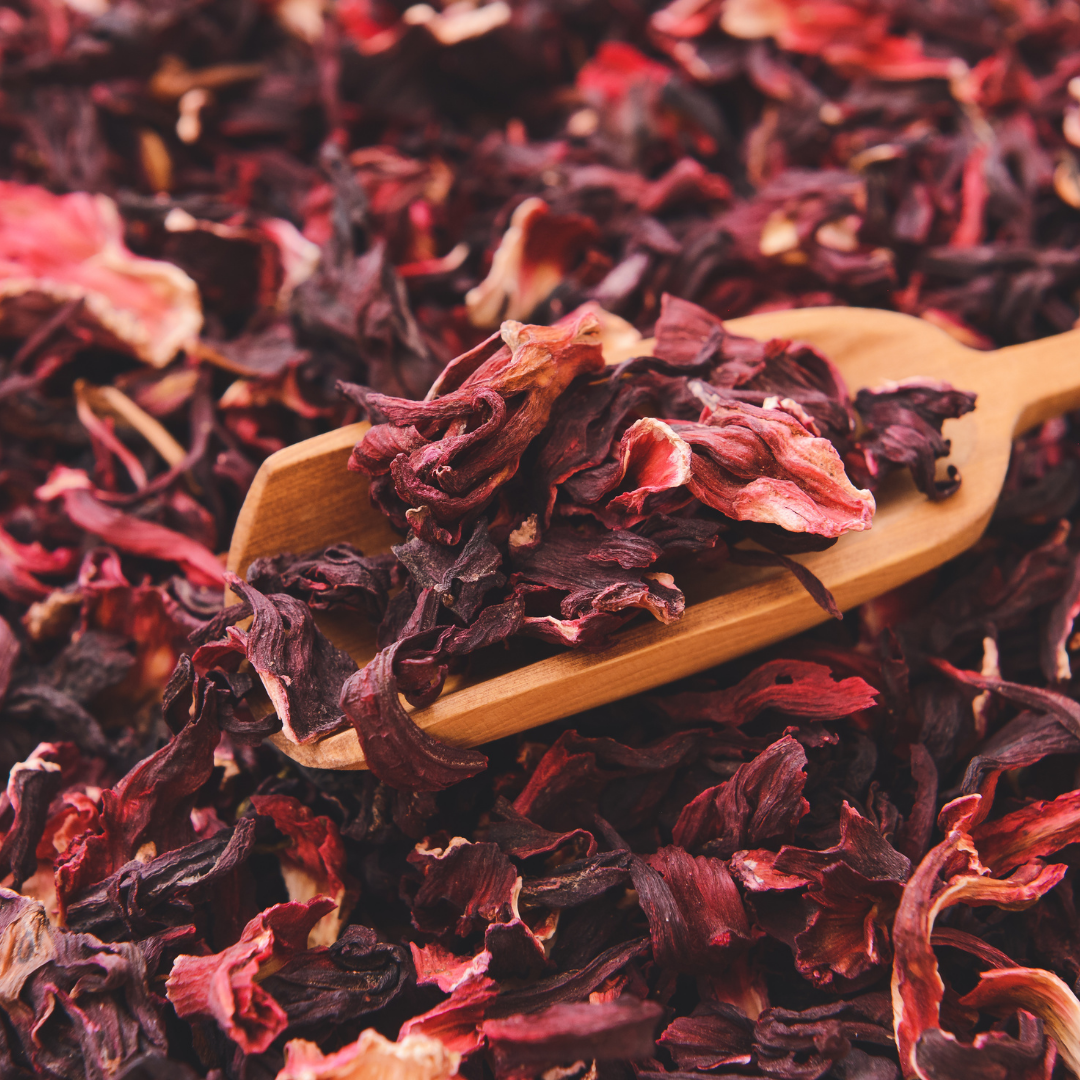
Hibiscus
Scientific Name: Hibiscus sabdariffa
Common Name: Hibiscus, Roselle
Health Benefits:
Supports Cardiovascular Health:
- Helps lower blood pressure in individuals with hypertension, promoting heart health.
- May reduce cholesterol levels, supporting a healthy cardiovascular system.
Rich in Antioxidants:
- Contains anthocyanins and other antioxidants that protect cells from oxidative stress and reduce inflammation.
Promotes Healthy Digestion:
- Acts as a mild diuretic, helping to eliminate excess fluid and support kidney function.
- May aid in digestion by promoting the breakdown of fats and improving metabolism.
Immune System Boost:
- High in Vitamin C, which strengthens the immune system and supports skin health.
Weight Management Support:
- Hibiscus may help regulate metabolism, reduce fat accumulation, and curb appetite.
Vitamins and Minerals:
- Vitamin C: Enhances immunity and promotes collagen production.
- Iron: Supports energy production and red blood cell formation.
- Calcium: Contributes to bone health and muscle function.
Active Compounds:
- Anthocyanins: Provide the vibrant red color and have strong antioxidant and anti-inflammatory effects.
- Organic Acids: Including citric, malic, and tartaric acids, which support digestion and metabolism.
- Polyphenols: Protect against oxidative stress and promote heart health.
Safety Information:
Blood Pressure Effects:
- Hibiscus may lower blood pressure, so individuals with low blood pressure or on antihypertensive medications should monitor their intake.
Pregnancy Caution:
- Avoid during pregnancy as it may stimulate uterine contractions.
Drug Interactions:
- May interact with blood pressure medications or diuretics. Consult a healthcare provider if taking these medications.
Usage Guidelines:
- Safe when consumed in moderate amounts as tea or in culinary applications.
Fun Fact:
Hibiscus tea, often referred to as "sour tea" due to its tart flavor, is a traditional drink in many cultures, including Egypt, where it is known as “karkade.”
Note:
This information is for educational purposes only and is not intended to replace medical advice. Always consult with a healthcare professional before using herbal products, especially if you are pregnant, nursing, or taking any medications.



